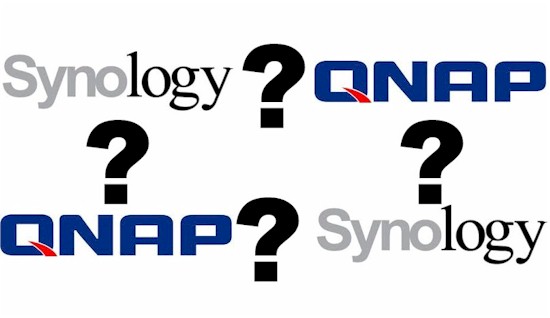Compare Synology Qnap
Introduction
Browse through the SNB NAS, QNAP and Synology Forums and you’ll find many, many posts asking for help in deciding between two similar models from these two popular NAS vendors, compare Synology Qnap. You can dig through specs, research forums and user reviews until your eyes bleed and post dozens of “which should I buy” queries around the net. In the end, the final choice has to be yours. Visit Qnap Singapore to compare synology qnap.
Strengths and Focus
Both companies said they weren’t interested in getting into detailed feature-by-feature comparisons. So if that’s what you are looking for, you can bail out now. But they were happy to talk about their core strengths and company direction. This is more valuable than you may think, because it helps you understand each company’s mindset.
In my former life as a test equipment engineer, the company I worked for set reliability as Job #1. This was drilled into my head from the day I joined the company until the marching orders changed years later, in response to a changing market. It formed many design decisions, which in turn set key aspects of products we designed. So understanding what a company values will help you understand the products it makes.
Synology said its primary focus is on improving the overall NAS user experience. This includes performance, features and support with equal importance on each. Support is done in-house by teams in Synology’s US, Taiwan, UK, and Germany offices. All products have at least a 2 year warranty with 3 years for “+” series products.
Synology also believes it led the market with the first AJAX based DiskStation Manager admin GUI and that its “desktop” model will be adopted by other manufacturers.
For those looking for more quantitative differences, Synology noted that it is the only NAS manufacturer to offer expandable NASes that connect to expansion units via high-bandwidth dedicated interfaces.
QNAP‘s primary focus is clearly on business users with a specific focus on virtualization. It is definitely after a chunk of the business now enjoyed by much higher priced products from NetApp, HP and Dell and to some extent, Drobo. To support this focus, QNAP has more models with hot-swappable bays (even single-drive models), LCD status screens and USB 3.0 ports and supports 6 Gb/s SATA on some high-end models.
QNAP was more specific in its responses than Synology. It said it believes its iSCSI implementation is more stable and flexible with features such as multiple LUNs and targets, flexible LUN mapping and LUN masking. QNAP’s iSCSI implementation includes iSCSI initiator (“VDD”) support that enables SAN-like capability.
Closing Thoughts
In the end, compare Synology Qnap have broad product lines with many features that can be expanded in storage and function. QNAP definitely has more models than Synology, but I don’t necessarily view that as an advantage. Buyers can spend more time than they should trying to figure out whether an extra $20 to $50 is worth it for a bit more performance. I’d like to see QNAP be more aggressive in retiring previous-generation products when it introduces models that are, for all intents and purposes, replacements for them.
As I said earlier, if you must have a specific feature, you still need to dig into spec tables and troll forums to be really, really sure that it’s there and works. But I hope this higher-level view has helped clear at leastsome of the general Synology / QNAP, QNAP / Synology fog from your brain.
Contact Us!
Disclaimer: Win-Pro Consultancy is a reseller of Synology Products. For Technical Support, please visit www.synology.com
If you are interested in Synology Products:
Hotline : +65 6100 2100 (SALES)
Phone Number : +65 6717 8729
Fax Number : +65 6717 5629
Address:
38 Jalan Pemimpin
#07-04 M38
Singapore 577178
